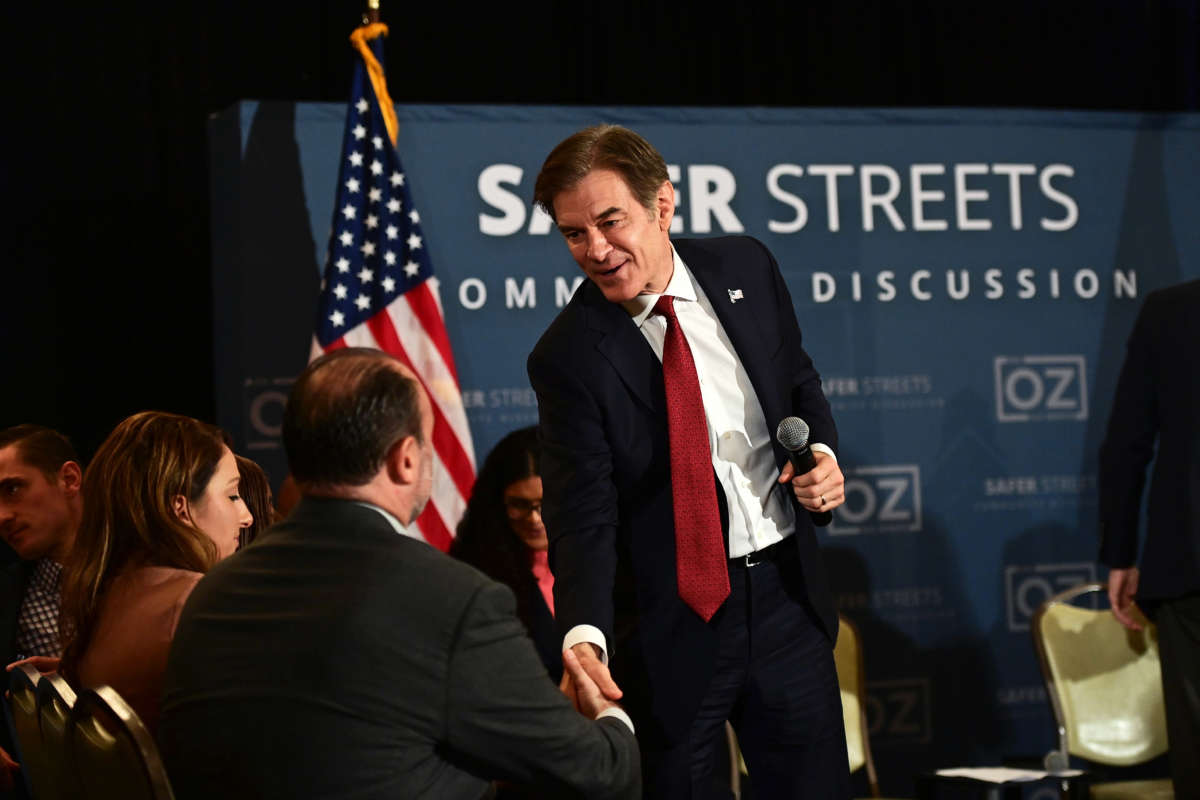Twelve years after the Supreme Court decided to allow corporations and the wealthy to spend unlimited amounts of money on elections, outside groups have broken their record for the highest amount ever spent on a midterm election — with weeks to go until Election Day.
According to OpenSecrets, outside groups have spent more on this election cycle than they ever have in a midterm, breaking the previous record set in the last midterm election in 2018. As of Friday, outside spending — the vast majority of which comes from dark money groups — reached roughly $1.34 billion, topping 2018’s record of $1.32 billion.
As OpenSecrets notes, there were still 25 days until the election on Friday, meaning that the amount of spending is set to rise precipitously as Election Day approaches. If it continues at this pace, in fact, outside spending could even surpass the amount of money spent by outside groups in 2020, even though presidential election cycles typically see far more spending than midterm elections do.
Republican-aligned groups have been the largest spenders this cycle so far, the report finds. The GOP’s Senate Leadership Fund and the Congressional Leadership Fund, which support Republicans’ Senate and House races, respectively, have collectively spent $259 million so far. This is far more than the amount that the Democrats’ two main congressional funds have spent, at about $107 million.
Senate races in Pennsylvania, Georgia, Nevada and Wisconsin have seen the most outside spending, with tens of millions of dollars being poured into each race. These races are particularly important, as control of even one extra seat for Republicans would give the party the majority in the chamber. Democrats are currently projected to keep control of the Senate, FiveThirtyEight finds.
Outside spending, or spending that comes from groups that aren’t officially affiliated with particular candidates, has sharply risen in every election cycle since the Supreme Court handed down Citizens United v. Federal Elections Commission in 2010. That decision has been criticized as one of the largest drivers of the growing amount of influence that corporations and the wealthy can have over elections — influence that is often completely anonymous.
While both major parties benefit from dark money and outside spending, progressive and leftist candidates are often targeted by these groups. Progressive candidates either stand up against the deep-pocketed interests who fund outside groups or will outright refuse to take money from dark money groups in order to signal their loyalties to voters.
The American Israel Public Affairs Committee (AIPAC), for instance, has been a major force against progressive candidates across the country, spending millions on attacking candidates like Summer Lee in Pennsylvania and Nida Allam in North Carolina this election cycle.
Democrats have been working to make political spending more transparent. Last month, Democratic senators tried to pass a bill that would have required the identity of dark money donors that give $10,000 or more in an election cycle to be disclosed, hoping to either dissuade donors from exercising such large influence or to expose their identities to voters. The bill failed 49 to 49, with Republicans uniformly opposed.
The Democrats’ For the People Act, which passed the House last year, would have implemented this disclosure requirement and had a section dedicated to undoing some of the effects that Citizens United has had on the political system, like creating a public financing system that would give the working class a chance to contribute financially to candidates they favor. But the For the People Act is opposed by Republicans and conservative Democrats in the Senate.
We have 10 days to raise $50,000 — we’re counting on your support!
For those who care about justice, liberation and even the very survival of our species, we must remember our power to take action.
We won’t pretend it’s the only thing you can or should do, but one small step is to pitch in to support Truthout — as one of the last remaining truly independent, nonprofit, reader-funded news platforms, your gift will help keep the facts flowing freely.
